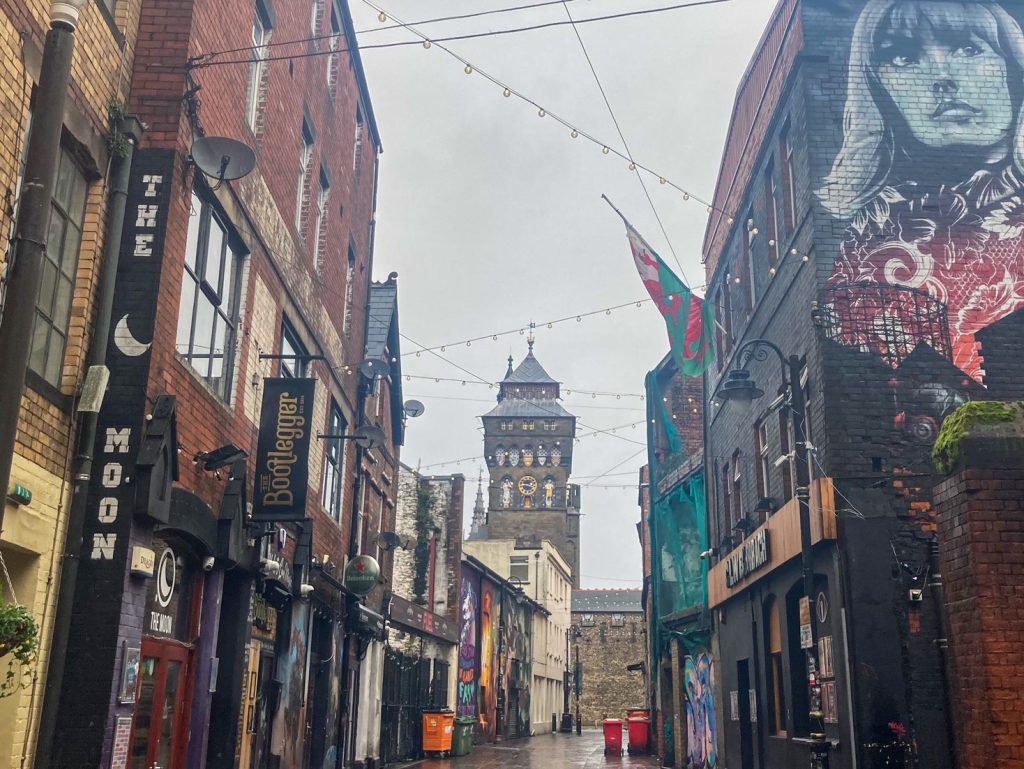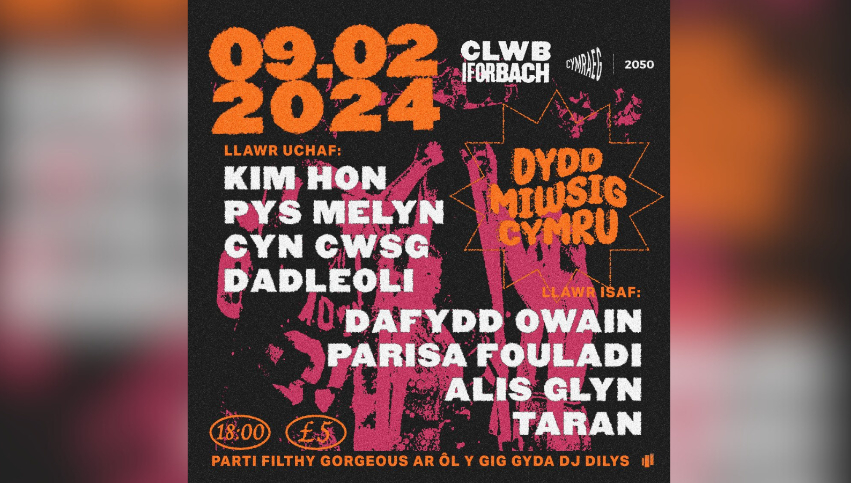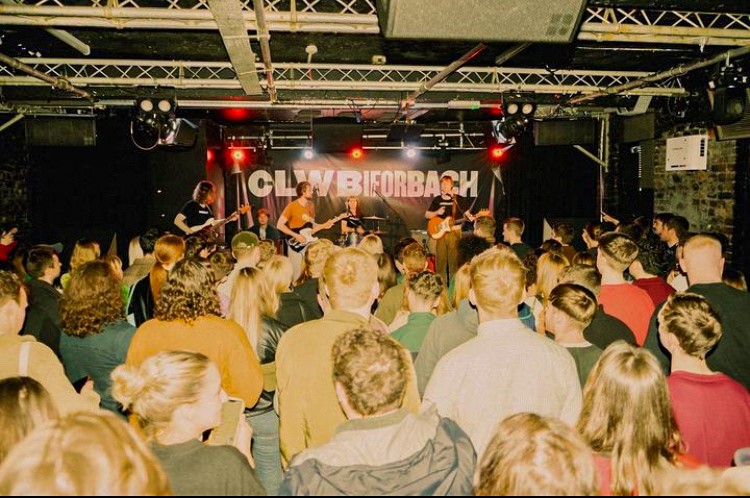On Welsh Language Music Day 2024, the challenges for the music’s visibility are different to years gone by – but they are still many and varied
WELSH rock band Mellt have called on streaming platforms to categorise their music by genre and not by language.
The Aberystwyth three-piece have two albums under their belt to date and have worked hard to refine a sound of their own, only to find that their music is often simply grouped into a “Welsh language” genre by streaming platforms.
“From a streaming perspective, it would be better to be put in a playlist with music that sounds like ours,” said Glyn Rhys-James, the band’s guitarist-vocalist.

Although streaming platforms can provide a much-needed international stage for Welsh language artists, it has the same plusses and minuses as any other form of music.
The band Alffa became the first Welsh band to reach one million streams on Spotify in 2018, but streaming services continue to pay very low rates for streams, rewarding only the biggest sellers and leaving smaller artists with little to show for their success – even if their numbers reflect a significant success for the language.
“Streaming is a double-edged sword,” said Tomos Lynch, the Welsh language music promoter for Cardiff’s Clwb Ifor Bach.
Bands like Mellt, who released their second album last year, can reach a level of musical maturity without seeing benefits from streaming services, instead relying on independent venues to give them exposure.
Today is Welsh Language Music Day (Dydd Miwsig Cymru), and events are taking place across Wales to celebrate Welsh language artists and music in all of its variation.
Cardiff’s famous Clwb Ifor Bach, who have hosted acts like Stereophonics, Manic Street Preachers, The Strokes and The Killers, say that today is “a day of big exposure and highlighting the work that goes on all year round”.

“Our goal is giving as many opportunities as possible to the artists that we can, and giving them that professional soundcheck,” said Tomos.
“Clwb is a shop window to Welsh language music that combines all genres, and Welsh language music has always been the backbone of Clwb.”

Mellt have also seen a shift in attitudes towards Welsh language music, and how the music is promoted.
“Over the last couple of years it has opened up a lot. The language doesn’t feel like a barrier anymore. At the moment it feels like we’re using the language and the mystery around it to our advantage,” said Glyn.
“We got an email from a guy from Oregon who wanted to know more about us.
“We sent him the lyrics so that he could translate them.”
Welsh labels like Ffin Records are working to promote Welsh music in England, organising events in Leeds. The website Klust also promotes emerging Welsh musical talent and give platforms to Welsh artists.
But Wales’ bilingualism might also be something that inadvertently restricts the audience for Welsh Language music, for example, on smartspeakers.
Requests to default English-language smart speakers for Welsh songs results in the wrong songs being played. With a minority of only 30% of Wales’ population speaking Welsh, it makes it difficult to grow the popularity of the nation’s music in its native country.
For Welsh music to climb further out of the ‘Welsh Language genre’ problem decribed by Mellt, there are still large and complex international issues to confront.
- Dydd Miswig Cymru is holding events throughout the day, and you can find what’s going on near you through the AM website.



